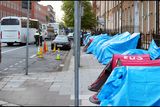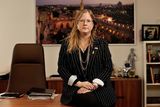Parents to shape policy on religion in schools
PARENTS are being given a voice on whether schoolchildren should spend more time on maths and English than preparing for sacraments such as First Holy Communion.
Education Minister Ruairi Quinn wants their views on the place of religion, among other issues, in primary schools, to help decide new government policy in this area.
The aim of the proposed new policy is to ensure that, with all the changes in Irish society, no child feels excluded from school activities on the grounds of religion.
Mr Quinn has issued an open invitation to parents to comment on proposals from the expert group on pluralism and patronage and to make their own suggestions.
It is part of the wider plan to reduce the dominance of the Catholic Church in primary education, giving parents greater choice of school ethos, and to make sure that all schools are inclusive.
Currently, the Catholic Church controls about 90pc of primary schools – and a key plank of the pluralism and patronage initiative is the handover of some of these to other patron bodies.
The other element is concerned with the 1,700 "stand-alone" schools – more than half of all primary schools – each of which serve a wide area on their own, and therefore must cater for all religions and beliefs in communities where there is no other choice.
An expert group established by Mr Quinn set out the issues that need to be addressed to ensure that all schools strike the right balance and that the religious beliefs of all children are respected.
These are the matters on which parents are now being invited to express their views, by email or post, to the Department of Education by Friday, November 22.
SACRAMENTS
One of the issues raised by the expert group was the amount of time spent during the school day preparing children for religious sacraments, which can eat into tuition time.
Parents have also been asked to consider school policies around celebrating religious holidays, school assemblies and prayers, and whether statues or other symbols should be on display in corridors, classrooms or halls.
In relation to the statues, the expert group suggested that any such displays should reflect the beliefs and cultures of all children who attend the schools.
While the place of religion is the main focus, parents' views are also invited on the make-up of boards of managements and in the school complaints and appeals system.
Join the Irish Independent WhatsApp channel
Stay up to date with all the latest news














